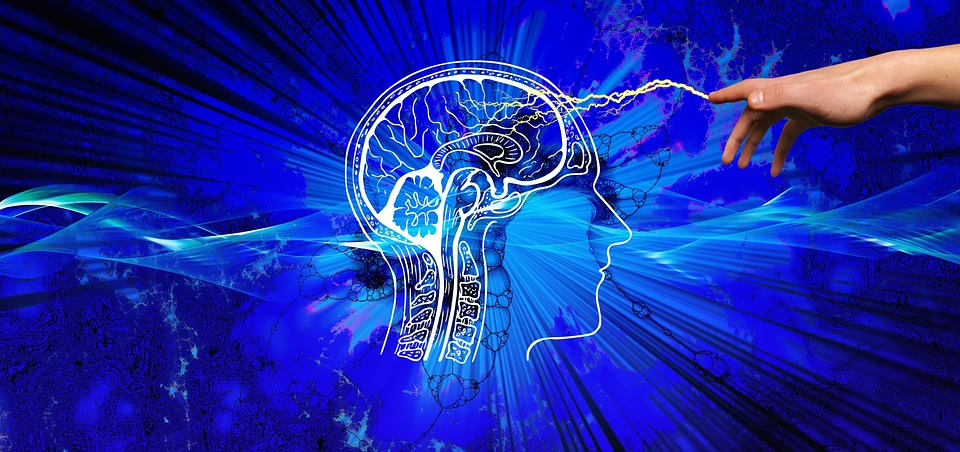Unlocking Potential: The Rise of Sports Psychology Master’s Programs
Introduction
In the past few decades, the field of sports psychology has gained unprecedented recognition within the athletic community. Athletes and coaches alike have begun to understand that mental fortitude plays a critical role in performance, sometimes making the difference between winning and losing. This increased awareness has led to a significant rise in specialized educational programs, particularly master’s degrees in sports psychology. These programs not only provide essential skills for working in diverse athletic settings but also contribute to the overall mental well-being of athletes.
Understanding Sports Psychology
Sports psychology is a scientific discipline that seeks to understand the psychological factors that influence performance and physical activity. It combines concepts from psychology, exercise science, and physiology to provide insight into the mental aspects of sports. Professionals in this field focus on various elements, including motivation, anxiety management, focus, and team dynamics, aimed at enhancing athletes’ performances.
The Role of Sports Psychologists
Sports psychologists work with athletes at all levels—from amateurs to professionals—using a variety of techniques to improve mental toughness and resilience. They offer mental skills training, help athletes cope with injuries, and provide strategies for performing under pressure. The expertise sports psychologists bring can also help coaches create a more supportive and productive environment for their teams.
The Emergence of Sports Psychology Master’s Programs
The growing recognition of the importance of mental health in sports has led to an increase in universities and colleges offering master’s programs specifically focused on sports psychology. According to the American Psychological Association, this educational trend is a response to the increasing demand for qualified professionals who can effectively address the psychological needs of athletes.
Historical Context
The roots of sports psychology can be traced back to the 1920s, but it wasn’t until the late 20th century that it gained considerable traction as a specialty. Initially a niche area, sports psychology matured as researchers and practitioners started to demonstrate its effectiveness. This growing body of research laid the groundwork for academic programs, leading to the establishment of master’s programs in the late 1990s and early 2000s.
Curriculum and Structure
Modern sports psychology master’s programs typically encompass a combination of core psychology courses, applied sports psychology training, and internships or practical experiences. Courses often include subjects such as performance enhancement strategies, psychological assessment, team dynamics, and research methods. Additionally, many programs require students to engage in practical experiences, allowing them to apply their theoretical knowledge in real-world settings.
Benefits of a Master’s in Sports Psychology
Academic and Professional Recognition
Completing a master’s program in sports psychology signifies a level of expertise that is increasingly valued in the athletic field. Accreditation by organizations such as the Association for Applied Sport Psychology (AASP) adds legitimacy to programs and graduates, ensuring that they meet specific educational standards. This recognition enhances the career prospects for graduates, enabling them to work in various contexts, from sports teams to corporate wellness programs.
Enhanced Skill Set
A comprehensive master’s program not only imparts theoretical knowledge but also hones various skills. Students develop competencies in areas such as communication, team management, and psychological assessment. This skill set is increasingly vital as sports organizations recognize the importance of mental health for performance optimization.
Networking Opportunities
Most master’s programs facilitate networking opportunities that can be essential for career advancement. Through internships and collaborative projects, students can connect with professionals already working in the field, gaining insights and improving their job prospects. Networking also allows students to be informed about job openings and industry trends.
The Impact on Athletes
Mental Health Benefits
One of the critical contributions of sports psychology programs is their focus on mental health. Athletes face high levels of stress, and specialized training equips them to manage this effectively. According to research, sports psychology interventions have been shown to significantly reduce anxiety and increase self-confidence among athletes. These improvements can lead to better performance and a healthier athletic experience overall.
Performance Enhancement
Athletes trained in sports psychology benefit not only from better mental health but also improved performance outcomes. Techniques such as visualization, self-talk, and goal setting have been documented to enhance performance consistency. Studies have demonstrated that athletes who engage with sports psychologists report more positive experiences during competitions, leading to improved analytical and emotional responses in high-pressure situations.
Success Beyond Sports
The principles learned in sports psychology are not limited to athletic contexts. Many graduates find that the skills they develop are applicable in various domains, including business, education, and healthcare. The ability to perform under pressure, manage stress, and communicate effectively extends beyond sports, making these professionals valuable in many industries.
The Global Landscape
Expanding Interest and Participation
Interest in sports psychology is not limited to the United States. Globally, there has been a marked increase in the number of institutions offering master’s programs in this discipline. Countries like the United Kingdom, Australia, and Canada have also embraced the significance of sports psychology, resulting in increased international collaboration in research and practice.
Addressing Cultural Diversity
The rise of sports psychology master’s programs has also highlighted the importance of cultural considerations in athletic performance. As sports become more global, so too do the psychological needs of athletes. Programs increasingly emphasize understanding cultural differences and tailoring interventions to cater to diverse populations. This sensitivity allows sports psychologists to better serve athletes from various backgrounds.
The Future of Sports Psychology Education
Integration with Technology
As technology continues to evolve, sports psychology education is adapting as well. Online courses and virtual training modules are becoming more common, allowing for wider access to educational resources. Additionally, advancements in data analytics are influencing how sports psychologists assess and enhance performance. Programs are likely to include more content related to these technologies, preparing graduates for a tech-savvy industry.
Increasing Research Opportunities
There is a growing demand for research in sports psychology, particularly concerning the psychological effects of injury, performance pressure, and mental health. Master’s programs will increasingly emphasize research methodologies, encouraging students to engage in original studies that contribute to the body of knowledge in the field.
Collaborative Approaches
Interdisciplinary collaboration will likely become a hallmark of future sports psychology programs. By working closely with professionals from fields like physical therapy, nutrition, and coaching, sports psychologists can provide a more holistic approach that considers the multifaceted nature of athletic performance.
Challenges Facing the Field
Stigma and Misunderstanding
Despite advancements, challenges remain in the acceptance of sports psychology. Some athletes and coaches may still regard mental health support with skepticism, viewing it as a weakness. Education and awareness campaigns are needed to combat stigma and promote the benefits of mental training.
Resources and Accessibility
Access to sports psychology services can be limited, particularly for amateur athletes and those in less affluent backgrounds. Programs need to focus on increasing the availability of mental health resources and support systems in all athletic contexts to ensure that everyone can benefit from this essential aspect of performance and well-being.
Conclusion
The rise of sports psychology master’s programs marks a significant turning point in the evolution of the athletic landscape. By recognizing the critical role that mental health plays in sports performance, educational institutions are preparing the next generation of sports psychologists to unlock the potential within athletes. As awareness of the importance of mental training continues to grow, we can expect increased participation in these programs and a more comprehensive understanding of the interplay between psychology and sports.
References
- APA. (2022). Overview of Sports Psychology. American Psychological Association.
- AASP. (n.d.). Standards for Sport Psychology Education and Training. Association for Applied Sport Psychology.
- Williams, J. M. (2010). Applied Sport Psychology: Personal Growth to Peak Performance. New York: McGraw-Hill.
- Vealey, R. S. (1988). Coaching for the Mental Game. In J. M. Williams (Ed.), Applied Sport Psychology: Personal Growth to Peak Performance. New York: McGraw-Hill.
- Hardy, L., & Jones, G. (1994). The Role of Sport Psychology in Performance. Journal of Sports Sciences, 12(6), 549-561.
This structure gives a comprehensive overview of the rise of sports psychology master’s programs, their benefits, impact on athletes, and future outlook—all while providing potential sources for expansion through footnotes in formal presentations.


























Add Comment